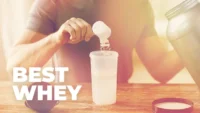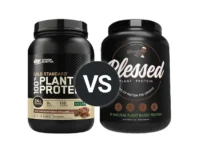Knowledge BaseYou're Questions Answered
Is whey isolate lactose free?
Whey protein isolate is a popular protein supplement known for its high protein content and minimal levels of fats and carbohydrates. It is derived from milk during the cheese-making process and goes through extensive processing to remove most of the lactose. Understanding whether whey isolate is completely lactose-free is essential for individuals with lactose intolerance or dairy sensitivities.
Lactose Content in Whey Isolate
Whey protein isolate is not entirely lactose-free, but it contains significantly lower amounts of lactose compared to whey protein concentrate. Typically, whey protein isolate contains less than 1% lactose, making it a more suitable option for people with mild lactose intolerance1. The filtration processes used to create whey isolate remove most of the lactose, leaving behind a protein-rich product with minimal sugar content.
Who Can Benefit from Whey Isolate?
- Individuals with Mild Lactose Intolerance: Many people with lactose intolerance can tolerate whey protein isolate without experiencing digestive discomfort due to its low lactose content.
- Those Seeking High Protein Content: Whey isolate typically contains 90% or more protein by weight, providing a highly concentrated source of protein with fewer carbohydrates and fats2.
Considerations for Those with Severe Lactose Intolerance
While whey isolate is suitable for most individuals with lactose intolerance, those with severe lactose sensitivity may still experience mild digestive issues. In such cases, it may be safer to choose a completely lactose-free protein option, such as:
- Plant-Based Protein Powders: Options like pea, soy, or rice protein powder are 100% lactose-free.
- Hydrolyzed Whey Protein Isolate: This type of isolate undergoes additional processing that breaks down the protein into smaller peptides and further reduces lactose content.
- Smithers, G. W. (2008). Whey and whey proteins—from ‘gutter-to-gold’. International Dairy Journal, 18(7), 695-704.
- Hoffman, J. R., & Falvo, M. J. (2004). Protein–which is best? Journal of Sports Science & Medicine, 3(3), 118-130.
Related Questions
Related Reviews

Your Answer
We are a participant in the Amazon Services LLC Associates Program, an affiliate advertising program designed to provide a means for us to earn fees by linking to Amazon.com and affiliated sites.



